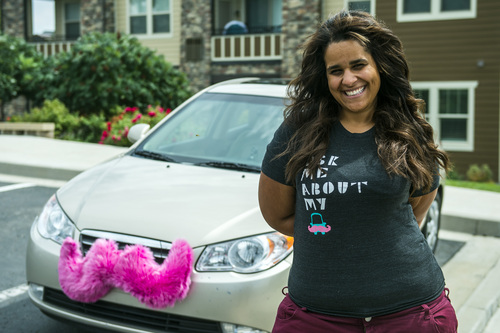This is an archived article that was published on sltrib.com in 2014, and information in the article may be outdated. It is provided only for personal research purposes and may not be reprinted.
The law works for no one unless it makes it clear what is and is not permitted. That's why laws can be very slow to change. Do it in pencil, with lots of cross-outs and erasures, and nobody knows just what it is they are supposed to do. Or not do.
Of course, that's a philosophy that grew up over generations of societies that also didn't change very much, or at least not very fast. These days, those who would make our laws are going to have to work harder to get up to speed, and to stay there.
Case in point: The new smart phone-based ridesharing services, such as Lyft and Uber, that have sprung up in cities all across America, including Salt Lake City. They are promoted as peer-to-peer cooperatives where people who are able to give rides to strangers are matched up with folks who need a quick lift somewhere. The rider pays the driver, and the national app provider gets a cut of 20 percent.
That's the cyberspace way of looking at them. The gravel pavement view is quite clearly that these folks are taxi drivers: not employed by any company, but still in the business of selling a point-to-point ride in their car over the city-owned and taxpayer-funded street system.
That's why Salt Lake City — in keeping with the most important law of all time, the way we've always done it — has sent out 118 warning notices, including 17 that carried fines of $6,500 per violation for breaking the city's taxicab laws.
The national operators of the services say they will fight the fines and pay for all litigation on behalf of their member/drivers. But they also are the first to admit that some kind of regulatory atmosphere is necessary if people on both sides of the transaction are to feel safe.
That's why Lyft and Uber do the kinds of things that both taxi companies and taxi regulators have always done. They do background checks on their drivers, and provide $1 million in insurance.
They also add the 21st century free-market part, by allowing both drivers and riders to log ratings so that everyone who participates can have a clue as to whether they want to be associated with one another. That's something that traditional cab companies don't have.
Pair that with an image, deserved or not, that many cabs are dreary, smelly and late, and it is easy to see why the ridesharing services were a market waiting to be exploited.
And why Salt Lake City Mayor Ralph Becker's people are correct to say they are preparing rules that double-check on such things as criminal backgrounds and vehicle safety while allowing this new and, apparently, in-demand transportation option to get on its feet.



